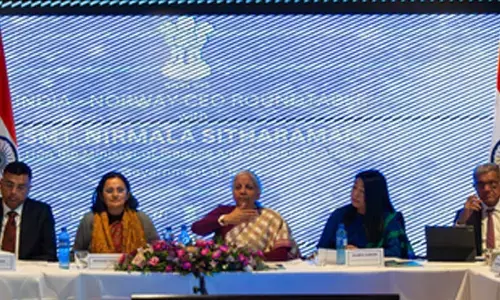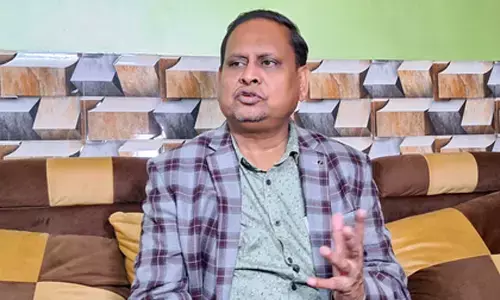Why women are more at risk of getting a heart attack

A study presented at the Heart Failure 2023, a scientific congress of the European Society of Cardiology (ESC), showed that women are more than twice as likely to die after a heart attack than men, despite receiving treatment within the same timeframe as their male counterparts
Long known to affect only men, heart attacks are now more prevalent among women but often their symptoms are missed, leading to delayed treatment as well as creating challenges for timely intervention, said health experts.
A study presented at the Heart Failure 2023, a scientific congress of the European Society of Cardiology (ESC), showed that women are more than twice as likely to die after a heart attack than men, despite receiving treatment within the same timeframe as their male counterparts.
“It is a common misconception that heart disease primarily affects men. In reality, heart disease is the leading cause of death for both men and women worldwide. However, the symptoms and presentation of heart disease can vary between genders, leading to differences in detection, diagnosis, and treatment,” says Dr Varun Bansal, Senior Consultant, Cardiology and Cardio Thoracic surgery at Indraprastha Apollo Hospitals.
Many studies have suggested that women often experience different symptoms of heart attack when compared to men. Men typically exhibit more classic symptoms of a heart attack, such as chest pain or discomfort, whereas women may experience atypical symptoms or different warning signs. These can include shortness of breath, fatigue, nausea, back or jaw pain, and dizziness.
“Since these symptoms are not always associated with heart disease, women may delay seeking medical attention, leading to a more advanced stage of the disease by the time it is diagnosed,” Dr Bansal said.
"Recognising the unique anatomical and hormonal characteristics of women and men is essential in understanding the varying risks they face when it comes to heart disease and stroke. The disparity in symptoms can result in underdiagnosis and delayed treatment, creating challenges for timely intervention,” added Dr Pradeep Kumar Nayak, Senior Consultant - Cardiology, Dharamshila Narayana Superspeciality Hospital.
Another study published in the American Heart Association’s journal Circulation, showed that women face a 20 per cent increased risk of developing heart failure or dying within five years after their first severe heart attack compared with men.
In addition, women were more likely than men to be older and have a more complicated medical history at the time of their heart attack.
Dr Bansal noted that women tend to develop heart disease typically after menopause when the protective effects of oestrogen decrease.
“Oestrogen has been shown to have beneficial effects on the cardiovascular system, including promoting healthy blood vessel function and reducing inflammation. After menopause, women may experience changes in their body and increase in cardiovascular risk,” he explained.
The factors which have added onto the disease burden when compared to men and the past are polycystic ovary syndrome (PCOS), pregnancy-related complications such as gestational diabetes and preeclampsia, subclinical depression and added stress of work and domestic responsibilities.
“To address these issues, it is crucial to raise awareness, promote early detection, and implement targeted prevention strategies that are specifically tailored to women. By empowering women to take control of their heart health, we can make a significant impact in reducing the risks they face," Dr Nayak said.









